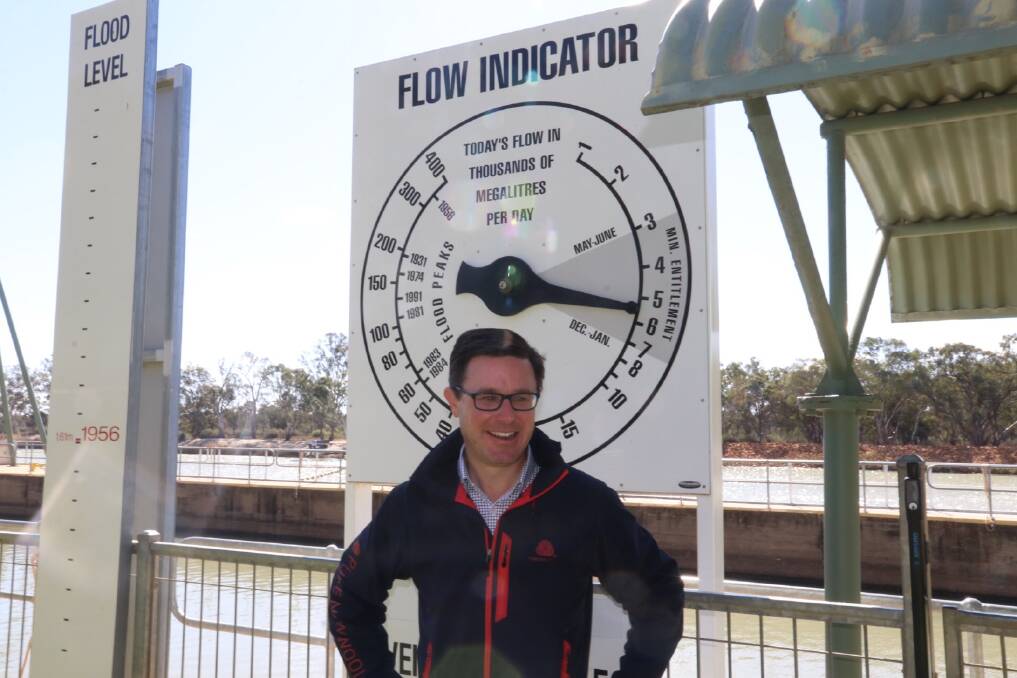
Severe drought has laid bare state government's failure to develop water storages and their inaction isn't only a risk to the viability of towns running out of water, it's a threat to the $13 billion Murray Darling Basin Plan.
That's according to Water and Drought Minister David Littleproud, who said some unscrupulous people are whipping up anger at the landmark water reform which is better directed at state governments which have shirked their job on water infrastructure.
"You cannot confuse drought with the Basin Plan," Mr Littleproud said today, during a tour of the southern NSW, Victoria and South Australia irrigation districts.
"There are minority elements within Basin communities that are politicising (water reform) for their own personal gain.
"People have had a gutful and really they just want government out of their lives, so we can complete it without more buybacks (of water entitlements from irrigators)."
Mr Littleproud, who was accompanied by Murray Darling Basin Inspector General Mick Keelty, took aim at state governments' which had barely built any new water infrastructure in the past two decades.
"I am going to hold state governments to account for the lack of action they have undertaken. State governments have abrogated their responsibilities on so many occasions," he said.
"They use us (the Commonwealth) as their ATM when they hit a problem but they don't deserve to have the responsibilities they have.
"The federal government has already put $3.2b out there for the states to take and build water infrastructure. There has been 19 dams built since 2003 and 16 of them have been in Tasmania."
Dams can deliver twin gains, for the environment and communities, Mr Littleproud said.
"The environmentalists that are against these dams so profusely should understand these dams provide environmental outcomes and drought proof Australia," he said.
"The Murray could have run dry if we hadn't built all these dams. If we were to go and dig from holes and store some more water, we might not only drought proof ourselves we might also get some better environmental outcomes."


